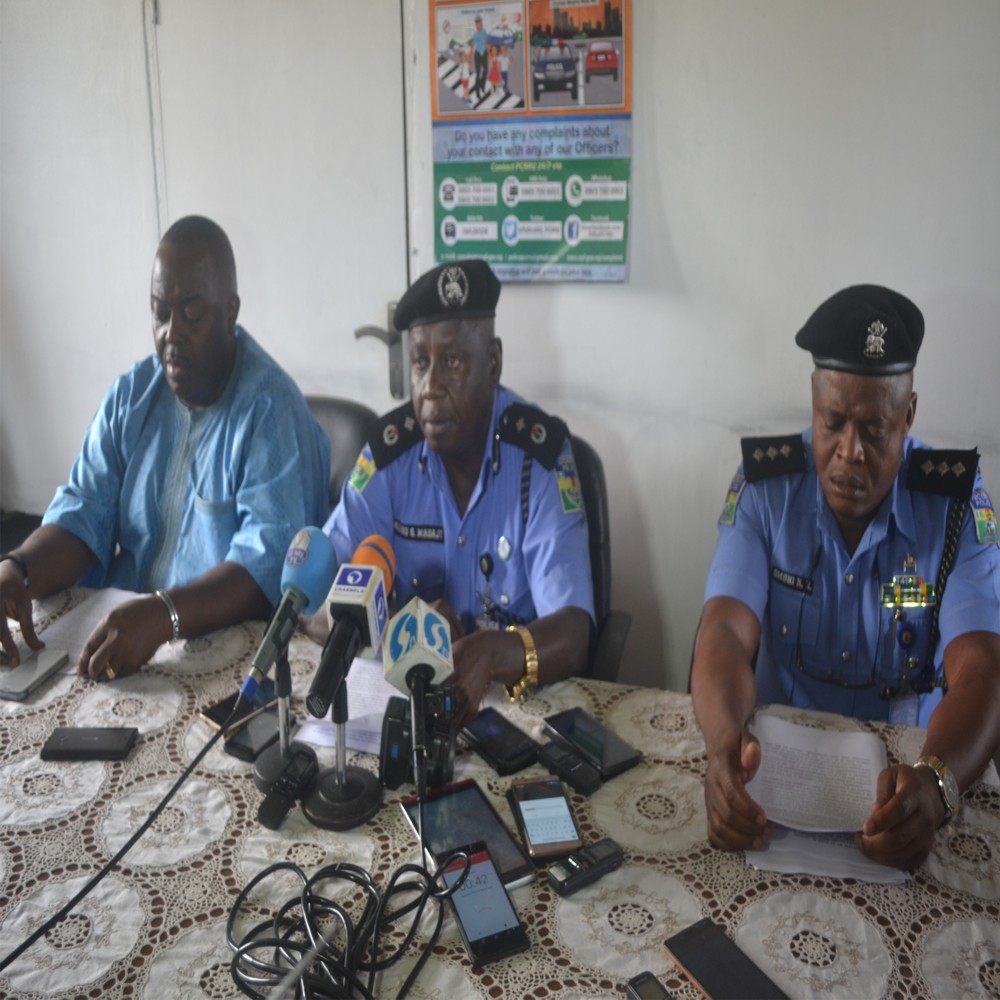News
INEC Declares Obiano Anambra Gov-Elect
The candidate of the All Progressives Grand Alliance, Willie Obiano has won the Anambra State governorship election.
Obiano won in all the 21 local government areas of the state with a total of 234,071 votes.
His victory comes despite two other major candidates enjoying the backing of a sitting president and his predecessor.
President Muhammadu Buhari last Wednesday campaigned in Awka for Tony Nwoye, the candidate of his All Progressives Congress, (APC). The president was joined in the campaign train by several other governors, lawmakers and Ministers of the APC including Governors Rochas Okorocha of Imo and Muhammed Abubakar of Bauchi State.
A day after, President Buhari campaigned for Mr. Nwoye, his predecessor, ex-President Goodluck Jonathan led about six governors of the Peoples Democratic Party, PDP, to campaign for the party’s candidate, Oseloka Obaze.
However, none of the presidents could convince Anambra voters. Over half of the eventual voters opted for Mr. Obiano.
The Returning Officer for the election, Zana Akpagu, the Vice Chancellor of University of Calabar, after announcing the results, declared Mr. Obiano, the incumbent governor, as winner having polled the highest number of votes in the election.
Mr. Akpagu said that a total 448, 771 votes were cast during the election last Saturday. Of the total votes, 422, 314 were valid while 26,457 were rejected.
Obiano was followed, with a wide margin by the APC candidate, Tony Nwoye, who polled a total of 98,752 votes.
Obaze of the PDP emerged third with 70,293 votes while Osita Chidoka of United Progressives Party, UPP, came a distant fourth after garnering 7,903 votes.
In his victory speech, Mr. Obiano asked the losing candidates to join him in administering the state.
The governor called on his co-contestants in the election to see the result as a victory for all Anambra residents. He said the interest of the state is bigger than the contestants’ private ambitions and urged them to join hands with him to build a better place for the people.
Mr. Chidoka, the UPP candidate has already accepted defeat in the election, saying the APGA candidate won because of his financial muscle.
Meanwhile, Governor Willie Obiano has described his victory in Saturday’s governorship election as showing a resolve by the people of the state to rise above varying interests and take full control of their destiny.
The governor disclosed this in an acceptance speech titled “Time to Build a New world” which he made after it became clear he had won the election.
Although, the Independent National Electoral Commission, INEC, as at the time of this report, had not declared Mr. Obiano winner, the electoral commission has announced that he won in all the 21 local governments of the state.
The text of his speech was sent to newsmen by Mr. Obiano’s media aide, Oliver Okpala.
Governor Obiano said the victory belongs to every Igbo man who is concerned about the place of Ndigbo in the nation’s polity. He said in the next four years, APGA will make inroads into other South-east and South-south states.
The governor called on his co-contestants in the election to see the result as a victory for all Anambra residents. He said the interest of the state is bigger than the contestants’ private ambitions and urged them to join hands with him to build a better place for the people.
He said by the victory, Anambra people have demonstrated that they are capable of taking charge of their lives and making difficult decisions that will brighten their future.
Mr. Obiano described the mandate as a historic call not to relent until the state has fully assumed the status of the model state of Nigeria. He said the victory is the final product of the combined efforts of brilliant men and women who sacrificed their personal comfort to ensure that Anambra’s steady march to progress is not derailed.
The governor expressed gratitude to all members of APGA for their steadfastness, the INEC for conducting a transparent election and the law enforcement agencies “whose alertness ensured that the people’s mandate is not thwarted.”
He charged the people to prepare for the speedy transformation of the state into a prosperous sub-national entity in the next four years.
According to him, the state has stepped into its finest hour and its journey into greatness is now assured.
He added that his government is open to new ideas and vision and is willing to work with anyone who has something to share that will make Anambra State great.

Rivers State Deputy Commissioner of Police, DCP Ahmed G. Magaji (middle), addressing newsmen on the activities of the command in Port Harcourt, last Friday. With him are Commander in charge of State Investigation ad Intelligence Department (SIIB), Felix Vwanhi (left) and Police Public Relations Officer, DSP Nnamdi Omoni.
Photo: Nwiueh Donatus Ken
News
Fubara Attends PDPGF Meeting In Asaba …..Back Court Verdict On National Secretary Position

Rivers State Governor, Sir Siminalayi Fubara, last Friday, attended the Peoples Democratic Party Governors’ Forum (PDP-GF) meeting in Asaba, the Delta State capital.
The Rivers State Governor, who is the Vice Chairman of the PDP Governors’ Forum, attended the meeting, alongside 10 other Governors of the party’s controlled states across the six geopolitical zones of the country.
The first PDPGF meeting in 2025, was held at the Government House in Asaba, at the end of which a seven-point resolution was reached.
Reading the communique at the end of the meeting, the Chairman of the Forum, and Governor of Bauchi State, Senator Bala Mohammed urged the National Working Committee (NWC) to put every machinery in place to ensure a hitch-free NEC meeting on March 13, 2025.
The communique stated:
“The Forum, having examined all the notices required by law to be given to validly convoke NEC, advised NWC to reschedule NEC to the thirteenth (13Th) of March 2025.”
The Forum further noted the Court of Appeal judgment affirming Udeh Okoye as the National Secretary of the party, saying that as a party that believes in the rule of law, it will respect the position of the Appellate Court on the matter.
“The Forum noted with delight the ongoing efforts at resolving the crisis in the National Working Committee, NWC, on the position of the National Secretary, and has reaffirmed its support for the Court of Appeal judgment; consequently, the Forum advised the NWC to set up the machinery for the effective implementation of the court judgment.
“While commending the country’s valiant and patriotic Armed Forces and Security Agencies for maintaining the frontline in securing the country and the gains of our gallant personnel against bandits in parts of the country, the Forum viewed with deep concern, the resurgence of brazen non-state actors. It, therefore, calls for the strengthening of the nation’s security architecture.”
Governors in attendance include: H.E Senator Bala Abdulkadir Mohammed (Bauchi State); H.E Sir Siminalayi Fubara (Rivers State) – Vice Chairman; H.E Rt. Hon. Sheriff Oborevwori (Delta State) – Host; H.E Dr. Agbu Kefas (Taraba State); H.E Rt. Hon. Ahmadu Umaru Fintiri (Adamawa State); and H.E Dr. Dauda Lawal (Zamfara State).
Others are H.E Senator Ademola Adeleke (Osun State); H.E Senator Douye Diri (Bayelsa State); H.E Pastor Umo Eno Ph.D (Akwa Ibom State); H.E Dr. Peter Mbah (Enugu State); H.E Barr. Caleb Mutfwang (Plateau State);
and H.E Bayo Lawal (Deputy Governor, Oyo State), who represented Governor Seyi Makinde.
News
NGO Implants Free Pacemakers Into 22 Cardiac Patients In PH
A United States based Non Governmental Organisation, Cardiovascular Education Forum, in collaboration with the University of Port Harcourt Teaching Hospital (UPTH), has successfully implanted free pacemakers into 22 patients with different cardiac cases in Port Harcourt.
This is in a bid to save lives and encourage patients with low heartbeats to live longer.
The implantable device, which costs $20,000 each, was inserted free of charge on the selected patients.
Speaking during a Special Hospital Ground Rounds at the UPTH with its Theme, “Recent Advances in Cardiac Pacing,” a cardiac Physiologist, Dr Neil Grub, said the NGO was in Nigeria to improve training and learning on cardiac issues and help patients with cardiac problems.
Accompanied by a team of experts comprising a cardiologist and cardiac device implanter, Dr Jagdeep Siagh, and UPTH interventional cardiologist, Dr Edafe Emmanuel, Dr Grubb said pacemakers were inserted on patients with low heartbeats to boost their heart rates.
Earlier, the Chief Medical Director, UPTH, Prof Henry Arinze Ugboma, said each of the implantable devices cost over $20,000.
Ugboma, represented by the Chairman, Medical Advisory Committee, UPTH, Prof Datonye Alasia, said the partnership between UPTH and the foreign NGO was to build networks, and improve services in terms of healthcare delivery, training and learning.
According to him, there is now a ray of hope in terms of treatment of patients with cardiovascular cases in the hospital.
He said the UPTH started the collaboration with Cardiovascular Education Forum in 2018 to boost health, training and learning on cardiac health.
He assured that, “in coming years, the scale of our collaboration with the mission will be higher.”
Chinedu Wosu
News
FG Unveils National Broadband Alliance To Drive Internet Access
The Federal Government has unveiled the National Broadband Alliance, a new initiative aimed at transforming the nation’s digital infrastructure and boosting connectivity across the country.
The initiative was unveiled yesterday in Lagos by the Minister of Communications, Innovation, and Digital Economy, Bosun Tijani, who was represented by the Executive Vice Chairman of the Nigerian Communications Commission, Aminu Maida.
In his address, Tijani stated that NBAN would significantly enhance broadband penetration, which has grown from just six per cent in 2015 to approximately 42 per cent as of October 2024.
To support this agenda, he said the government was leveraging a Special Purpose Vehicle to deploy 90,000 km of fibre backbone across the nation, connecting underserved and rural communities to high-speed internet.
According to him, the initiative aligns with the Renewed Hope Agenda of President Bola Ahmed Tinubu, which prioritises innovation, technology, and collaboration as key drivers of national prosperity.
Tijani stated that the expansion would not only improve access to reliable broadband but also empower Nigerians, particularly in rural areas.
“While the progress made in broadband penetration is commendable, we recognise that much more needs to be done to ensure every Nigerian can enjoy the benefits of reliable, high-speed internet,” Tijani said.
The minister also emphasised the importance of strategic partnerships with donors, investors, and other key stakeholders in achieving the goals set out in the National Broadband Plan (2020–2025).
He said these collaborations would be essential in overcoming infrastructure development challenges and making broadband affordable and accessible for all Nigerians.
“These targets reflect our unwavering commitment to ensuring that broadband is accessible, affordable, and inclusive for all Nigerians. However, we are also aware of the challenges ahead,” he added.
Tijani stressed that achieving the government’s targets—70 per cent broadband penetration by 2025, a minimum internet speed of 25 Mbps in urban areas, and broadband access for 80 per cent of the population by 2027—will require sustained efforts.
“Achieving these goals will require more than just the efforts of the private sector. It will require a holistic approach that includes strategic partnerships with donors, investors, and other key stakeholders in accelerating the rollout of critical infrastructure,” he said.
-

 Niger Delta1 day ago
Niger Delta1 day agoHYPREP Presents Scholarship Grants To 300 Ogoni Postgraduate Students
-

 News1 day ago
News1 day agoS’South Deputy Govs Pay Condolence Visit To A’Ibom Colleague
-
Niger Delta1 day ago
Environmentalist Makes Case For Oceans Preservation
-
Sports1 day ago
Aruna, renew rivalry at Singapore Smash 2025
-
Business1 day ago
Expert Tasks Government On Civil Maritime Security Unit
-
Nation1 day ago
Ahaoda West’s Impactful Projects Excite RIMA Boss
-
Politics1 day ago
Edo Assembly Drags LG Chairmen To Court, Seeks LG Law Interpretation
-
Niger Delta1 day ago
A’Ibom CP Cautions Youth Against Violence In Oil Producing Communities

